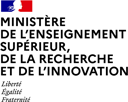Moderators : Melvin Medina, FAO-NSP, Italy; Rémi Kahane, Cirad, France
The goal of this workshop is to engage the audience in active discussion on sustainable approaches for technological adaptation to increase the efficiency and resilience of horticultural systems for small-scale farmers. How can limiting factors be overcome such as decreasing crop yields and incomes due to climate extreme events, water scarcity, land degradation, pests and diseases, limited access to technical assistance, appropriate inputs, financial resources and markets?
The workshop is of interest to a diverse audience of practitioners such as farmers and extension agents, researchers and horticulturalists, NGOs and opinion leaders, funding agencies and policy makers, to develop and implement projects, programmes, initiatives and to create an enabling environment for the adoption of context-specific and cost-effective technologies adapted to small-scale farmers. Field experiences and innovative approaches will be openly discussed to understand how adaptation has been achieved, what challenges were overcome, to ensure sustainability: income generation, environmental protection and social equity.
Panelists representing different geographic regions, climatic conditions, and cropping systems will share field experiences and knowledge on production and protection of vegetable crops to improve livelihoods of communities as well as on scaling approaches to achieve the SDGs for better production, nutrition, livelihoods and environment.
Unpredictable rainfall, water scarcity, increased pests, diseases, and soil degradation have compromised farmers’ livelihoods, forcing many to migrate in search of opportunities to generate incomes and sustain their families’ basic needs. Sustainable horticultural systems cultivating short cycle vegetables are important to generate high and stable incomes from relatively small units of land, water and nutrients, to promote decent jobs, to improve nutrition and create appropriate business opportunities for seeds, seedling systems, pest and disease diagnostic and management systems, accurate water and nutrient delivery systems, post-harvest services including sorting, washing, storing, packaging, processing and market linkages. There are a wide range of technologies and costs, from low cost greenhouses and net-houses to fully automated high-tech systems, adapted to urban and peri-urban zones. These can extend harvesting seasons and grow crops year-round with increased productivity and more efficient use of soil, water, nutrients and light while ensuring food produced is nutritious and safe through minimized use of pesticides. Additionally, the systems offer the opportunity to include adapted technologies and practices such as soil-less culture as in the case of hydroponics, aeroponics, aquaponics, microgreens or substrate based, the use of sensors, grafting techniques, the efficient use of biological control agents, recycling of nutrient solutions and drip irrigation. FAO and partners have successfully adapted technical solutions to increase production efficiency including: low cost structures for protected cultivation systems using greenhouses and net-houses, adapted varieties, seedling production systems, soil management, soilless systems, efficient irrigation systems and integrated pest and diseases management. Projects targeting small-scale farming systems are being implemented across the world and knowledge will be shared on how to address limiting factors such as seasonality and extreme climate events.
The panel will include:
1. Elizabeth Nsimadala. President of the Pan Africa Farmers Organization (PAFO) and the Eastern Africa Farmers Federation (EAFF). Perspective on technology adaptation and challenges in the context of small-scale farmers in Africa.
2. Israel Joukhadar. Vegetable Program Manager at the New Mexico State University. Adapted, accessible, affordable and efficient low cost horticulture systems in Asia.
3. Allan Pineda. FAO, Georgia. Efficient management of horticulture systems through capacity development on protected cultivation, mechanization and conservation agriculture in Georgia.
4. Jervis Rowe. President of the Jamaica Greenhouse Growers’ Association. Adapted greenhouse technologies for vegetable value chains in Jamaica.
5. Lucrecia Bellido Perez. Programme Officer - Field Expansion Lead at United Nations World Food Programme. Efficient hydroponic systems using local materials in the development and humanitarian context.
6. Thibaud Martin (CIRAD). Protected cultivation in Sub-Saharan Africa: limits and prospects for small-scale producers. thibaud.martin@cirad.fr
7. Melvin Medina (FAO NSP). Adapting and promoting sustainable crop production intensification through efficient protected cultivation systems globally.








